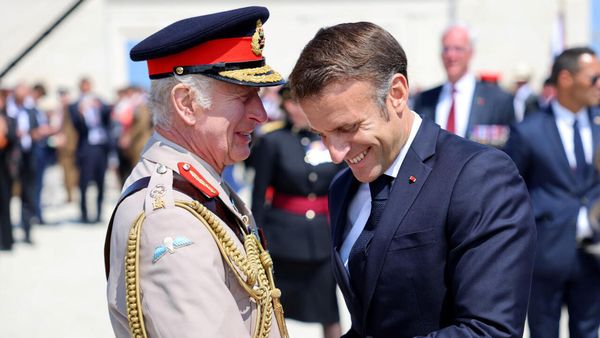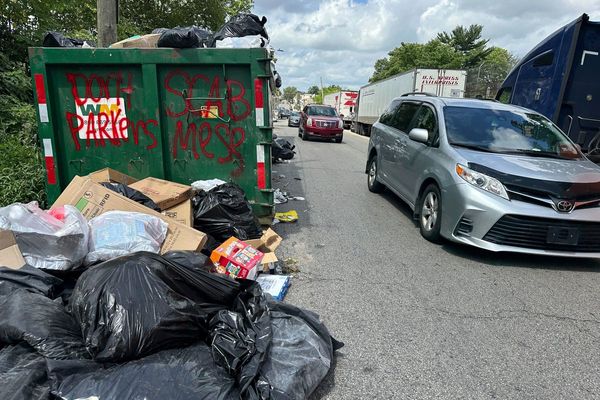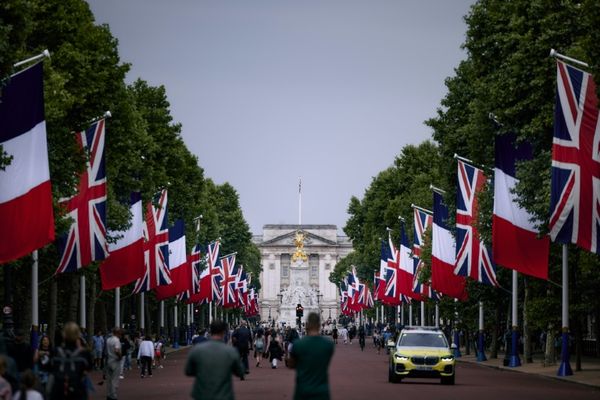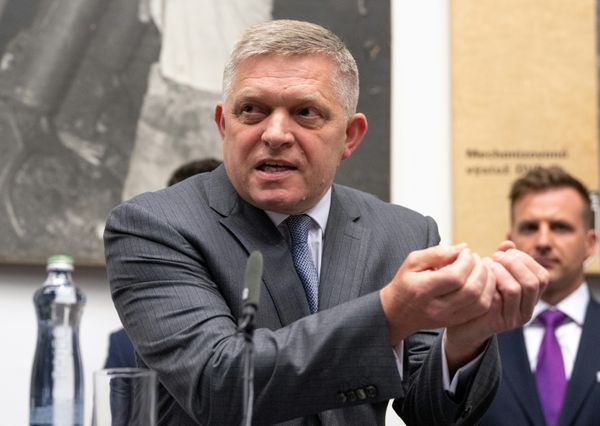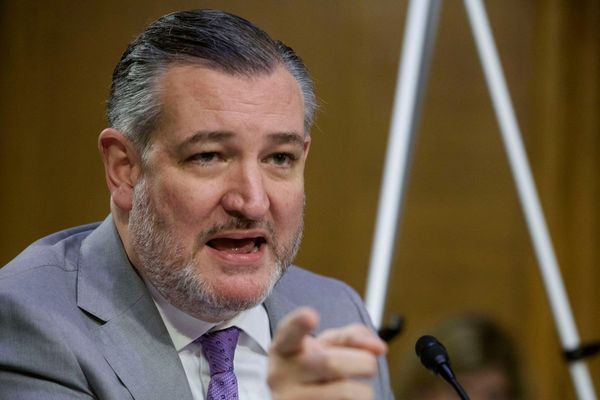"The Hitman's Bodyguard" features a director in Patrick Hughes who has only two so-so feature films to his credit, a writer in Tom O'Connor who has only penned one produced movie script before and a pair of actors in Ryan Reynolds and Samuel L. Jackson who love to improvise. This isn't a formula for failure but really doesn't suggest it's a blueprint for a great success either.
What "The Hitman's Bodyguard" ends up being is a film with some very high and desperately low moments that rises above standard action film fare because of the lethal acting weapon of Reynolds and Jackson.
After more than 250 professional kills, Darius Kincaid (Jackson) has finally been captured. He's facing a life behind bars but if he helps Interpol by testifying against a brutal dictator, Vladislav Dukhovich (Gary Oldman), during a trial going on at the International Court at The Hague, Kincaid's wife (Salma Hayek) will be given a full pardon. This proves a deadly deal as a leak inside Interpol allows Dukhovich's men to track down the witness to kill him.
The only thing that saves Kincaid is Bryce (Reynolds), a top-notch bodyguard who has fallen on some hard times. He's called in to protect Kincaid by Interpol agent Amelia Roussel (Elodie Yung), who has a history with Bryce. Kincaid also has a history with Bryce but they have to put their plans to kill each other on hold to get the witness to court on time.
Director Hughes fills this journey with gunfire that's almost as rapid as Reynold's dialogue. The fight sequences generally are well-staged, especially a high-speed gun battle through the streets of Amsterdam. This is a film that is so loaded with firepower, there are at least three places where it looks like the end has arrived only to have the action get ramped up again.
Where Hughes falls apart is when he falls into some painfully illogical action scene moments. Kincaid is such a sharpshooter that he can shoot through a tiny opening and kill a person from 300 meters away and yet when he's chasing down an unarmed bad guy on a rooftop, Kincaid conveniently can't hit the side of a building.
This is the kind of weapons use expected from bad guys. It never fails that when the good guy needs to survive an attack, the villains miss even when a few feet away. There's a gun battle along a canal bank where there are only a few feet separating Kincaid from a car full of killers with automatic weapons. You can guess how well that goes.
Hughes is not alone in his failures as the script by O'Connor often comes to a dead halt for either Bryce or Kincaid to reminisce about falling in love. These interludes offer nothing new about the characters but only serve to extend the running time of the movie and give the wasted Hayek something to do.
O'Connor also gives in and uses the standard evil dictator mold for his central bad guy. Oldman tries his best to make the character as sinister as possible but the way the role is written he comes across more as a villain cut from an "Austin Powers" movie. Even the leak in Interpol is so obvious you almost expect him to be wearing a T-shirt that says "I (heart) Dictators."
And, the writer's biggest lack of originality comes with the timeline given to get Kincaid to the courtroom on time. It has become a hackneyed device to have the heroes arrive just as the too familiar shot of a clock ticking away moves toward the deadline.
Here's another one for you. The hitman and bodyguard flag down a van. As Bryce enters the van he fires off a flurry of expletives. Is the van filled with tourists, soldiers or nuns? Those who pick nuns have spent plenty of time watching action movies.
The soundtrack selected by Hughes features some great tunes from "Black Betty" performed by Spiderbait to "Dancing in the Moonlight" by King Harvest. They are great tunes but unlike the way director Edgar Wright made the soundtrack to his "Baby Driver" so much a part of the movie it felt like another character, the song selection for "The Hitman's Bodyguard" sounds like someone left their iPod playing while the action unfold. It's a great playlist but not as connected as it should be.
A lot of this can be forgiven because of the energy Reynolds brings to the role and the joy Jackson seems to have with every part he plays (even if they are all only slight variations of his past work). Reynolds' character chatters so much that even his traveling buddy points out how he never shuts up.
Bryce gets his shot at Kincaid commenting on how much he uses a phrase that gets redubbed as "melon farmer" on network television. Jackson uses the foul language so much that � as Bryce says � the power has been drained completely out of it.
The non-stop bickering between Bryce and Kincaid never allows for a dull moment � even with a quiet moment would be deeply appreciated. There hasn't been this kind of insane banner between two guys involved in a constant gunplay since the days of the "Lethal Weapon" movies.
They are so good at handling this kind of verbal sparring that they make up for the weakness in both the direction and writing. The work by Reynolds and Jackson is killer but much of the rest of the movie plays like footage from an assortment of older B-grade action movies.
